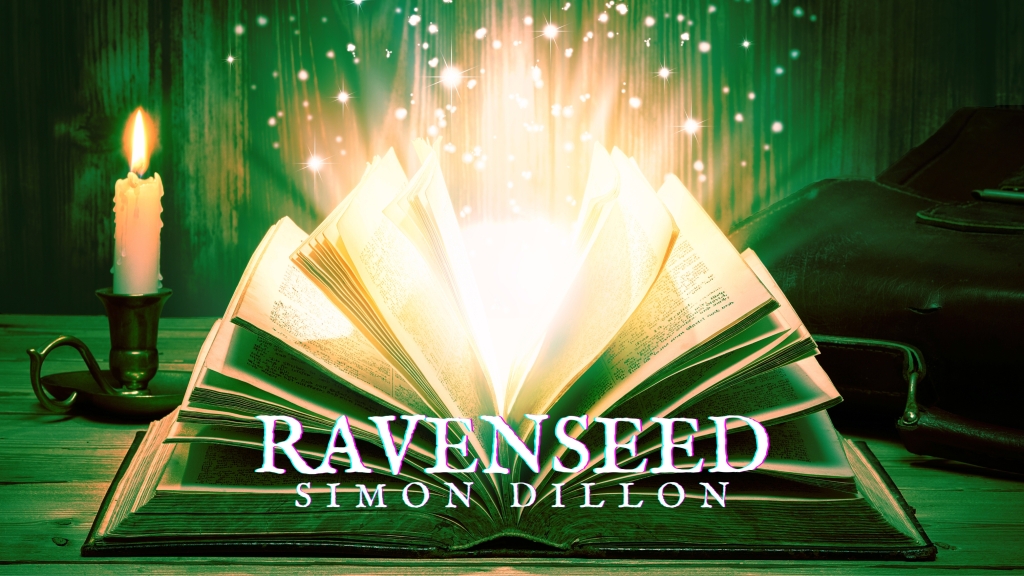
My new novel Ravenseed is out now. A page-turning epic of love, lust, betrayal, and vengeance, this (mostly) Dark Ages-set tale marks my first foray into the fantasy genre. Ravenseed has been a long time in gestation, with many rewrites, tweaks, and polishes. I am extremely pleased with it, and I do hope you’ll read and enjoy it.
What’s it about? Here’s the blurb from the back of the book:
532 AD. Knights Sir Peter and Sir Matthew ride to battle, but when they take an ill-advised detour, the two friends find themselves involved in a quest to break a curse on Sir Matthew’s love, Elizabeth.
The quest sends them on a journey through Anglia, where they encounter magicians, spirits, gods, and dangers beyond their wildest dreams – from without and within.
In the present day, as teenager Fay Pendleton reads an ancient account of the two knights, scars start appearing on her face. Despite her ongoing disfigurement, she becomes obsessed with discovering the outcome of the quest, and her link to this mysterious story.
Hopefully, that will spark your interest. As I mentioned in my previous announcement, I don’t intend for Ravenseed to be purely for genre fans. This novel is written to have broad appeal for all (adult) readers. In my not particularly humble opinion, all the best fantasy novels have that same broad appeal – The Lord of the Rings, the Harry Potter series, and His Dark Materials, for instance.
One thing I’ve learned about writing fantasy is not to make worldbuilding the main thing. Yes, worldbuilding provides background, but it should not become foreground. People generally don’t read The Lord of the Rings because they’re fascinated by arcane details of Elven magic, Dwarf metallurgy, or how many mana points Gandalf needs to defeat a Balrog. They read it because of universally resonant, relatable themes – courage, loyalty, friendship, temptation, betrayal, sacrifice, the love of home, the horrors of war, the devastation of the industrial machine at the expense of the environment, good versus evil (not just external evil, but the evil in oneself), growing up, the melancholy at the end of an era, and so forth.
In the case of Ravenseed, the tightrope of drip-feeding worldbuilding into the narrative whilst avoiding the fall into the dreaded info dump was not an issue, because it is mostly set in the Dark Ages. Everyone is aware of that era by cultural osmosis due to the Arthur legends. Creating a dirt-under-the-fingernails landscape of bleak moors, mountains, rivers, and mystical forests, or dwellings such as taverns, monasteries, besieged castles, and so forth, gave the novel a feeling of the familiar. Setting the novel in and around areas I know in southwest England (and further north) also proved immensely liberating.
My tagline sums up the plot thus: “An epic tale of love, lust, betrayal, and vengeance.” All four of those themes are universally relatable, and in addition, the book is about friendship, loyalty, honour, and a lot more I wouldn’t dream of spoiling. Although most of the novel is set in the Dark Ages, there’s also a parallel plot in the present day that provides a contemporary reference point, again reinforcing the idea that this is a grounded fantasy. As such, this is a story with relatable characters that can be enjoyed by all, regardless of the genre.
You can pick up Ravenseed from Amazon on Kindle or paperback here (in the UK) and here (in the US). Downloads or paperbacks are also available from Draft2Digital, Smashwords, and associated outlets here.

You must be logged in to post a comment.